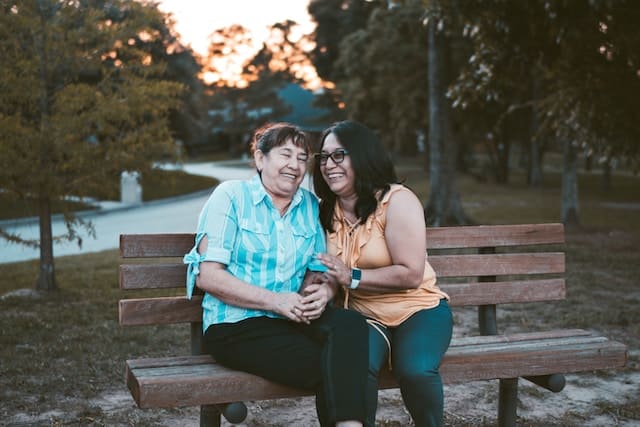
Have you ever felt like you and your partner just can’t seem to understand each other, no matter how hard you try? Communication in relationships can be challenging, and miscommunication can lead to misunderstandings, conflicts, and emotional distance. But fear not, because therapy for communication in relationships can be a game-changer. Whether you’re struggling to express your needs, feeling unheard, or simply want to strengthen your connection, therapy provides a supportive and transformative space to enhance your communication skills and revitalize your relationship.
Browse our Therapist Directory
Quick Navigation
- What Does Communication In Relationships Even Mean?
- Why Do So Many People Struggle with Communication in Relationships?
- Benefits of Learning Better Communication in Relationships
- Communication in Relationships Isn’t Just About Couples
- Therapy for Communication in Relationships: Individual or Couples Therapy?
- Types of Therapy for Relationship Communication
What Does Communication In Relationships Even Mean?
We all know that we’re supposed to communicate more and better in relationships in order for them to be healthy. But what does that actually mean?
Communication in relationships refers to the process of exchanging thoughts, feelings, and information between partners in a way that is respectful, clear, and honest. It goes beyond mere verbal expression and encompasses nonverbal cues, active listening, and emotional understanding.
Effective communication is the foundation of a healthy relationship, as it fosters emotional intimacy, trust, and mutual respect. It involves being open, vulnerable, and responsive to each other’s needs, creating an environment where both partners feel heard, understood, and valued.
Communication in relationships is a dynamic and ongoing process that allows partners to navigate conflicts, express affection, share goals, and build a strong and meaningful connection with each other.

Why Do So Many People Struggle with Communication in Relationships?
Many people encounter struggles with communication in relationships due to a combination of factors. Firstly, some individuals may lack effective communication skills, having never been taught or exposed to healthy models of expressing thoughts and emotions. Additionally, past experiences, such as conflicts or traumas in previous relationships, can create emotional barriers that hinder open and vulnerable communication in current partnerships. These negative experiences may lead to fears of being misunderstood or rejected, making individuals hesitant to express themselves fully.
Moreover, unmet needs and unspoken expectations can contribute to communication difficulties. Partners may struggle to articulate their desires and may become frustrated when their needs are not met, leading to potential misunderstandings and resentment. Furthermore, differences in cultural backgrounds and communication styles can add complexity to the communication process, as partners from diverse cultural backgrounds may interpret messages differently, resulting in communication breakdowns.
Plus, external factors like stress and work pressures can impact the ability to engage in effective communication, as partners may be preoccupied with external challenges, leaving less energy and focus for nurturing their relationship. To address these challenges, it is crucial for individuals and couples to develop self-awareness, cultivate active listening skills, and seek professional guidance through therapy. With support and effort, couples can navigate these barriers and work towards creating a more harmonious and emotionally connected relationship built on effective communication and understanding.
Benefits of Learning Better Communication in Relationships
Learning better communication in relationships enriches the emotional bond, strengthens trust, and empowers partners to cultivate a more harmonious and fulfilling partnership. By actively practicing and developing these skills, couples can create a supportive and loving environment where both partners feel valued, understood, and cherished. Specific benefits may include:
- Improved Understanding: Effective communication allows partners to understand each other’s perspectives, feelings, and needs more deeply, fostering emotional intimacy and empathy.
- Conflict Resolution: Better communication skills enable couples to navigate conflicts constructively, addressing issues openly and finding mutually satisfactory resolutions.
- Enhanced Emotional Intimacy: Improved communication facilitates the expression of emotions, leading to a deeper emotional bond and a sense of closeness between partners.
- Building Trust: Open and honest communication fosters trust and transparency, creating a strong foundation for a trusting and secure relationship.
- Reduced Misunderstandings: Clear and effective communication helps prevent misunderstandings and assumptions, reducing unnecessary conflicts and tension.
- Validation and Support: Through effective communication, partners can provide validation, emotional support, and reassurance to each other, creating a sense of safety and comfort in the relationship.
- Strengthened Connection: Better communication allows partners to share their dreams, goals, and values, strengthening their connection and sense of partnership.
- Respectful Boundaries: Learning to communicate with respect and understanding helps establish and maintain healthy boundaries in the relationship.
- Increased Relationship Satisfaction: Couples with strong communication skills often report higher levels of relationship satisfaction and happiness.
- Empowerment and Autonomy: Improved communication enables each partner to express their individual needs, desires, and boundaries, fostering a sense of autonomy and self-empowerment.
- Effective Problem-Solving: Partners can collaboratively work together to identify and address challenges, making joint decisions and effectively managing life’s ups and downs.
- Enhanced Parenting: Effective communication benefits parenting relationships, as partners can co-parent more harmoniously, ensuring the best interests of their children.
- Conflict Prevention: By addressing issues early on through communication, partners can prevent conflicts from escalating into more significant problems.
- Better Emotional Regulation: Effective communication supports emotional regulation, as partners can express emotions without fear of judgment or criticism.
Communication in Relationships Isn’t Just About Couples
Communication in relationships isn’t limited to romantic couples alone; it extends far beyond that. Our lives are interconnected with various relationships, including family members, friends, colleagues, and acquaintances.
Effective communication plays a pivotal role in nurturing and maintaining these connections. Sharing thoughts, emotions, and ideas openly with others fosters understanding, trust, and mutual respect. It enables us to navigate conflicts, strengthen bonds, and create a supportive network of individuals who genuinely care for each other.
Whether it’s expressing love to family members, collaborating with coworkers, or being there for friends during challenging times, the power of communication bridges gaps, builds connections, and enriches the fabric of our lives.
Emphasizing healthy communication in all relationships cultivates a harmonious and fulfilling social environment, promoting emotional well-being and lasting connections with those we cherish.
Therapy for Communication in Relationships: Individual or Couples Therapy?
Individual therapy focuses on the personal growth and development of one partner in the relationship. It can be beneficial when one partner is struggling with communication issues, such as difficulty expressing emotions, setting boundaries, or dealing with past traumas that impact their ability to communicate effectively. Individual therapy can help individuals develop better communication skills, build self-awareness, and address any personal barriers that may be affecting their ability to communicate openly and authentically within the relationship.
Couples therapy, also known as relationship or marriage counseling, involves both partners attending therapy sessions together. It provides a safe and neutral space for partners to address communication challenges, conflicts, and other relational issues collaboratively. Couples therapy can help improve communication by teaching active listening, assertive expression, and effective conflict resolution skills. It also allows partners to explore their individual communication styles and work together to establish healthier patterns of communication within the relationship.
In some cases, a combination of individual and couples therapy may be recommended to address both personal and relational aspects of communication. For instance, if one partner has underlying issues that affect communication, individual therapy can complement the work done in couples therapy. The therapist can also provide support and guidance for individual growth, which can positively impact the overall relationship.
Ultimately, the choice between individual and couples therapy depends on the specific concerns and goals of the individuals involved. A qualified therapist can assess the situation and recommend the most suitable approach to support better communication and overall relationship well-being.
Types of Therapy for Relationship Communication
There are several types of therapy that can be used to address communication issues in relationships. Each approach offers unique techniques and focuses to help partners improve their communication skills and strengthen their connection. You’ll work with your therapist to find the one (or combination) that’s right for you. Some examples include:
1. Internal Family Systems (IFS) Therapy
Internal Family Systems (IFS) therapy is a powerful approach that helps individuals and couples understand the different “parts” of themselves that influence their emotions and communication. In relationships, IFS helps partners identify protective parts that may be preventing vulnerability, openness, and clear communication. By working through these inner conflicts, partners can respond to each other with greater empathy and understanding, rather than reacting from past wounds or defense mechanisms.
2. Hakomi Therapy
Hakomi is a mindfulness-based somatic therapy that focuses on how unconscious beliefs shape behavior and communication patterns in relationships. By integrating body awareness and mindfulness, couples can become more attuned to nonverbal cues, emotional triggers, and underlying fears that impact how they express themselves. Hakomi helps partners develop deeper emotional presence and attunement, leading to more authentic and compassionatecommunication.
3. PACT (Psychobiological Approach to Couples Therapy)
PACT is a science-backed therapy that combines neuroscience, attachment theory, and arousal regulation to help couples build stronger communication habits. It focuses on how the brain and nervous system impact relationship dynamics, especially during conflict. Couples learn to stay emotionally connected, manage stress responses, and co-regulate each other’s emotions, which fosters deeper trust and more effective communication.
4. Narrative Therapy
Narrative Therapy helps couples rewrite the stories they tell about their relationship by separating the problem from their identity. Many couples feel stuck in negative cycles—believing they are “bad communicators” or that their partner “never listens.” Narrative therapy challenges these limiting beliefs and encourages partners to focus on their strengths and shared values to improve their interactions. By reshaping their relationship “story,” couples can create new, healthier communication patterns.
5. Mindfulness-Based Therapy
Mindfulness-based therapy teaches couples to be fully present in their interactions, reducing reactive communication and emotional overwhelm. Many arguments escalate because partners respond based on stress, past experiences, or assumptions rather than truly listening to each other. By practicing mindfulness, couples slow down, regulate their emotions, and develop nonjudgmental awareness, which leads to more thoughtful and connected conversations.
6. Object Relations Therapy
Object Relations Therapy explores how early childhood attachments influence current relationship dynamics and communication styles. If a person grew up in an environment where emotions weren’t validated, they might struggle to express their needs or feel safe setting boundaries. This therapy helps individuals and couples understand these deep-rooted patterns and develop healthier ways of expressing needs, responding to conflict, and fostering emotional security.
7. Somatic Experiencing Therapy
Somatic Experiencing Therapy focuses on the body’s response to stress and trauma, helping individuals regulate their nervous systems in moments of high emotional intensity. For couples, this approach is particularly useful for breaking patterns of reactive communication—such as shutting down, becoming defensive, or escalating arguments. By learning to track bodily sensations and self-soothe, partners can communicate more calmly and effectively, even in challenging discussions.
8. Psychodynamic Therapy
Psychodynamic therapy explores the unconscious emotions, past experiences, and defense mechanisms that shape relationship communication. It helps couples recognize how unresolved emotional conflicts from the past influence their current interactions. By increasing self-awareness, partners can break free from destructive communication patterns and develop healthier, more intentional ways of relating to each other.
Find a therapist who can help you work through these challenges by choosing “communication and relationships” from the “what we help” dropdown menu in our therapist directory.
See Also:
Browse our Therapist Directory





